BY BANJO DAMILOLA
A young man leapt out of the anti-cultism unit of the Nigeria Police Force in Gbagada, Lagos, as his mother hurtled towards him. Emaciated, and having his face twisted by glaring discomfort, he had just broken loose from what was the worst experience of his life, having spent the previous weeks locked up in torrid conditions at the Gbagada police unit.
Few steps to the infamous blue gate of the detention centre, he stopped, took a handful of red sand in the premises, swerved it over his head three times; then, just as he finally stepped outside, he released it into the open air, letting it go back into the compound and dusted his hands clean. It was a symbolic gesture: “Never again!”.
His experience offers a window into the encounters of several Nigerians, old and young, with the police institution that brazenly violates the country’s law through arbitrary arrests, illegal detention, torture, and commoditising justice and bail.
A long-time investigation, including weeks of undercover reporting, revealed one of the police establishments notorious for its human rights violation. The anti-cultism unit at Gbagada, a suburb of Lagos state, is dreadful, but only to the innocent and those unable to pay for a wiped slate. The single bungalow building is notorious for torture, extortion and criminal detention of hapless Nigerians.
Advertisement
Every day, family members of the detainees assemble in clusters, opposite the building, agonising about the “ransom” they have to pay the investigating police officers (IPOs) of their detained relatives. Not paying this illegal fee portends one thing — protracted legal battle or continued detention within a system skewed to crush the poor.
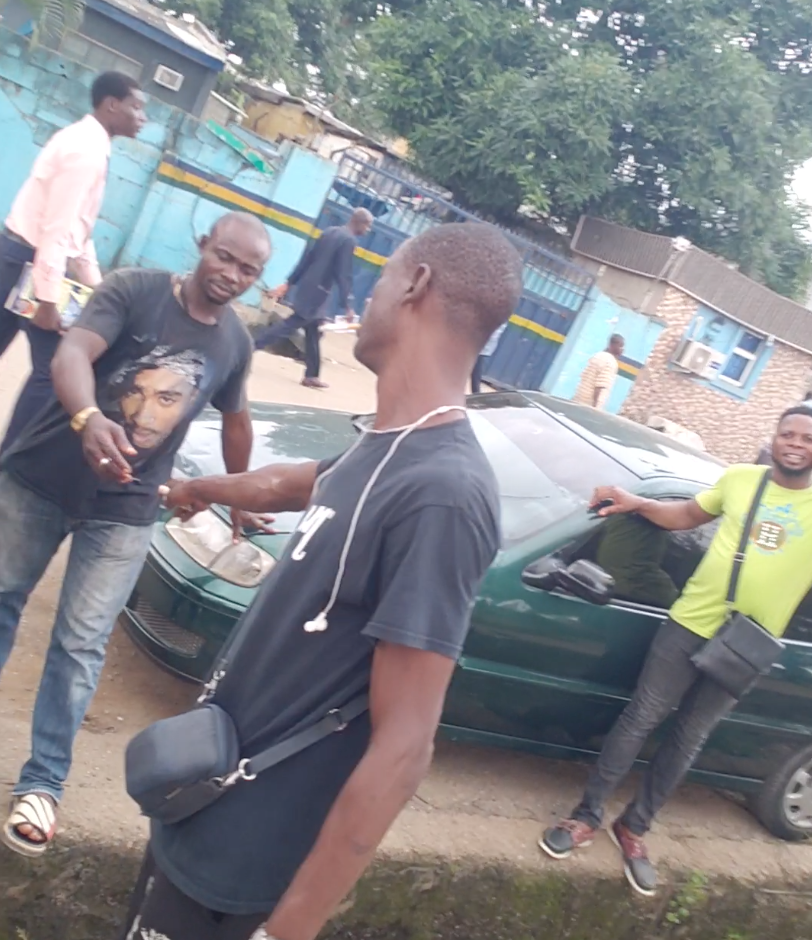
The IPOs are gods, the generalissimos of the detention camp. They are feared because of the power they wield. They determine how long – weeks, many times, months – suspects spend in the holding cell. Ex-detainees and families also say they are arrogant and disrespectful. In the presence of an IPO, relatives of detainees genuflect, with their hands in between their thighs, as they plead –and pay– for the freedom of their detained child or spouse.
So, when the young man dusted his hands, gesturing never to return to the ‘anti-cultism’, as the station is often called among the locals, other parents anticipating the release of their own children sighed, partly congratulatory but mostly hopeful that they, too, might lead their children out alive.
Advertisement
“I thank God for his mother,” said a woman anticipating the release of her child.
“Only God knows how much his mother paid to get him out.
“Better don’t think about the money,” another woman replied as the conversation continued. “Getting our own people out is what we should be praying about. She should be thankful that she has money. Someone can rot inside here if their families don’t have money for bail.”
Indeed, detainees, who could not cough out the huge bail sums are held perpetually, and if they are unlucky, they get charged to court on trumped-up charges, investigations revealed.
Advertisement
FRAUD, EXTORTION, FRUSTRATION
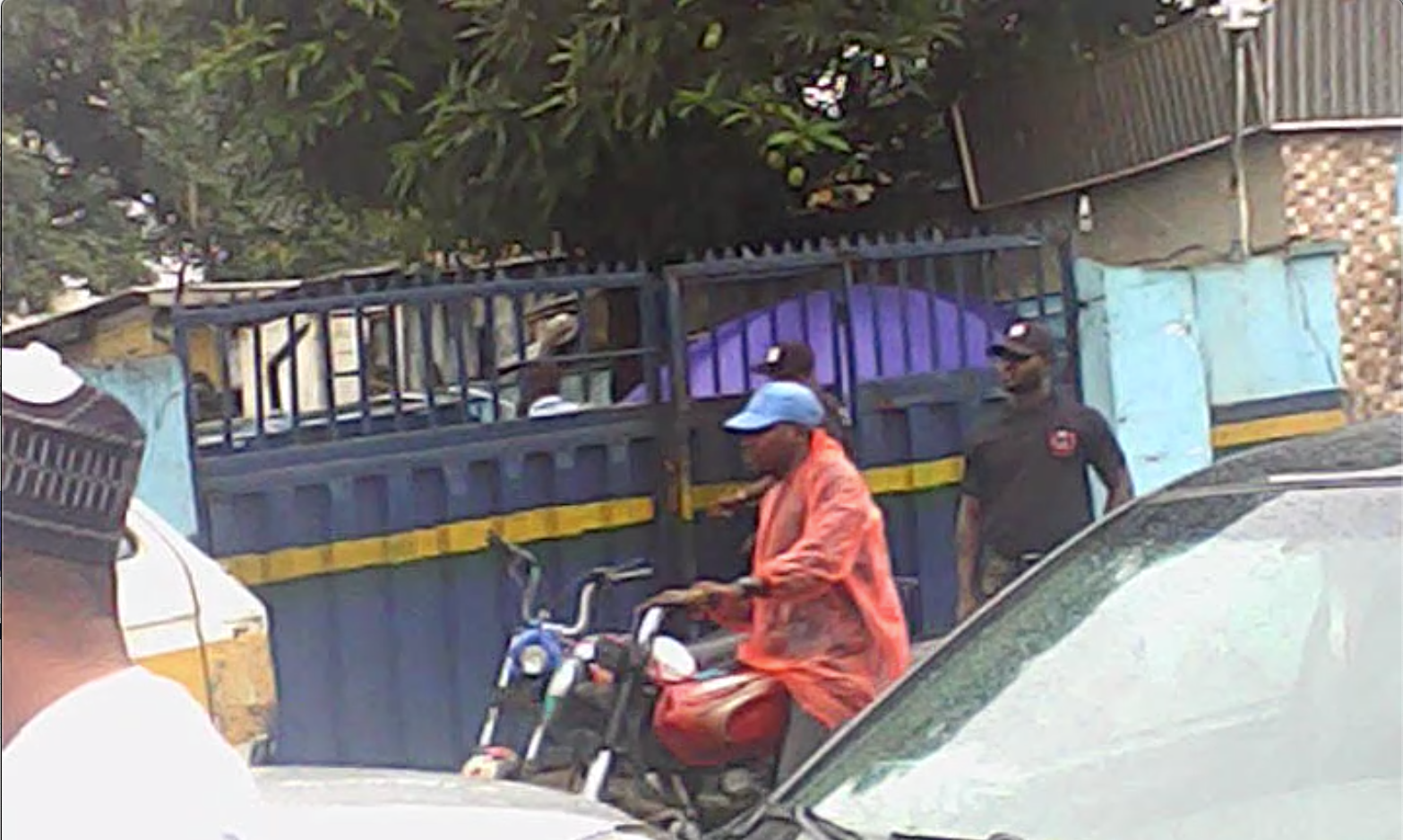
After weeks of undercover reporting outside the station, yielding shocking details of how families scrape together money to bribe the police, this reporter gained access into the station to capture first-hand how the police not only detain citizens in brazen violence to the law but form a money-making enterprise from the misery of these poor citizens.
Indeed, securing the release of detainees from police stations in Nigeria is usually draining financially and emotionally but the anti-cultism unit pushes limits. At every turn, there is a policeman demanding a bribe for any interaction with those in custody. N500 to drop a phone, N1000 to see the detainee, and another N500 to give food to the detainee. The officers take a 10% cut on every money given to the detainees. The avenues for extortion are endless.
At the main entrance, four policemen sit at a table, every day, to ensure visitors do not go into the main building with phones. Of course, the restriction of phones is to shield the world from the illegalities that go on in the station. The officers at the hate not only extort relatives of detainees but also harass them. With AK47 strapped to their sides, or left menacingly on the table, they intimidate visitors, screaming and threatening to “fire” at the slightest provocation.
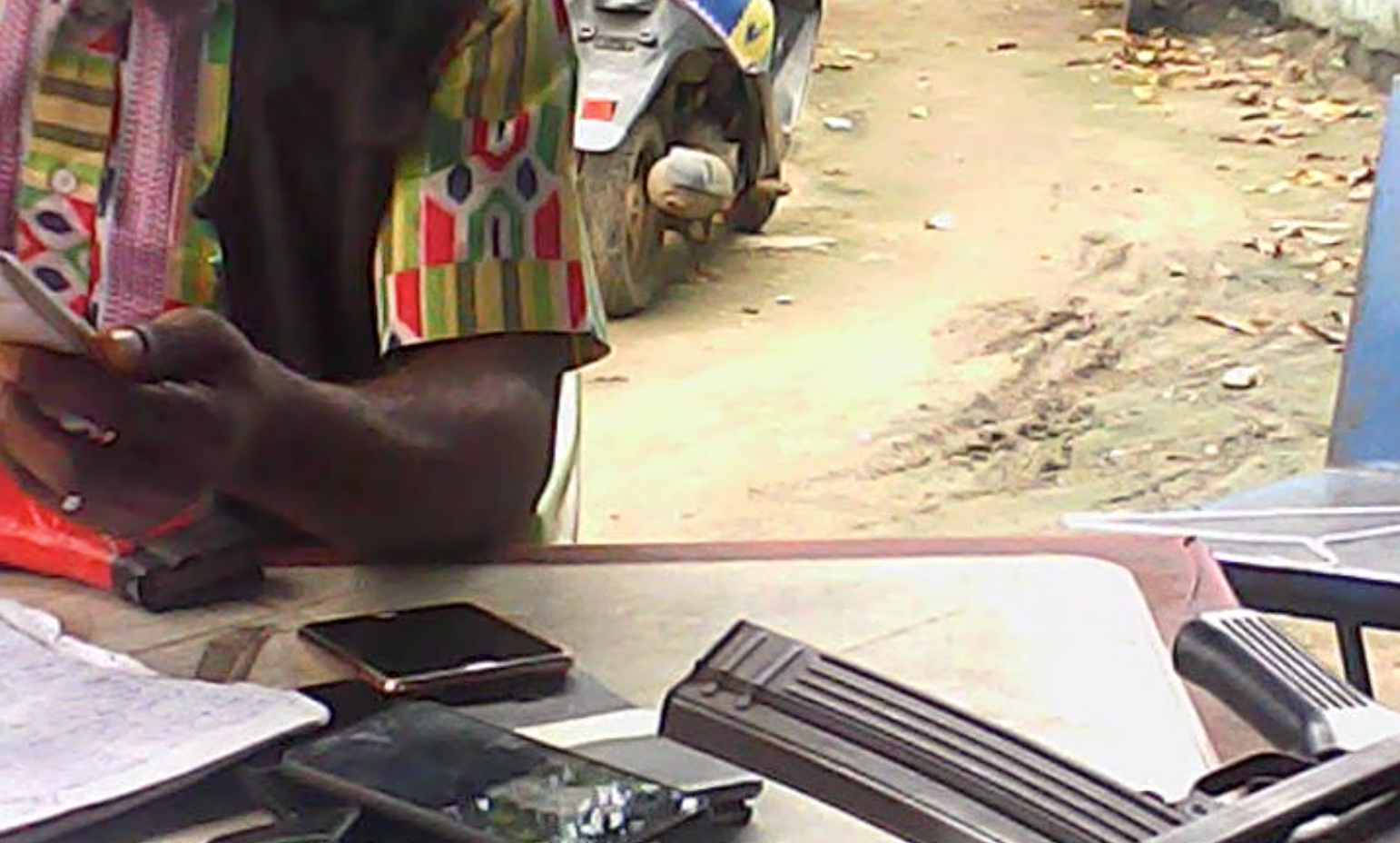
However, their braggadocio ebbs when their palms are greased with naira notes. A hitherto minacious face would soften. It costs N500 to retire a phone with them, and each time the phone is retrieved for use, they demand another N500 before one is allowed to return it.
Advertisement
The reception in the main building is not any different. Another police officer bills visitors before they are allowed to contact the detainees. Usually, the charges are not negotiable.
“You will all have to pay N1, 000 each,” an officer told some women waiting to see their detained relative.
Advertisement
These petty extortion hinder people from seeing their relatives. They are forced to rely on others to either get food or money across while they wait under an almond tree, opposite the station, where they lament and console one another
Rabiu had been in detention for 60 days, his mother said. The station would not release her son and would not charge him to court either. When she visited her son one time, she paid her way through to see him but another time, however, she sat opposite the station, lost in thought and helpless.
Advertisement
Thursday, July 11, 2019, was one of such days she could not see her son. She pleaded with a roadside vendor who supplied food to the detainees to give her son some food and tell him she was outside.
“Maybe tomorrow, I will enter to see him,” she told a woman who asked if she would be going into the station. “I don’t have money to pay today. I have given the money I have with me to the food seller to give him some food for me.”
Advertisement
While Rabiu’s mother was having a conversation with the other woman on one side, another mother was soliloquizing. She was completely unaware of her environment.
“When I warn this child, it appeared as though I am a wicked mother,” she said in Yoruba, monologuing. “Where do I carry this to? Who do I cry to? Where do I see N300,000?” This reporter looked on, held by the woman’s lamentation. She was one of several mothers whose children remain in the detention of the anti-cultism unit because of the inability to cough out the bail sum.
The Nigerian constitution and the Administration of the Criminal Justice Acts (ACJA) provide that all suspects must be released or charged to court within 48 hours of arrest.
Section 8 (3) of ACJA holds that “a suspect shall be brought before the court as prescribed by this Act or any other written law or otherwise released conditionally or unconditionally”.
This, as investigation showed, is clearly not adhered to, in many instances, by the anti-cultism unit. There are suspects held in detention for weeks without court orders. They remain incarcerated while their family members are pressured to raise huge amounts for bail.
BAIL IS FREE? NO! IT’S VERY EXPENSIVE
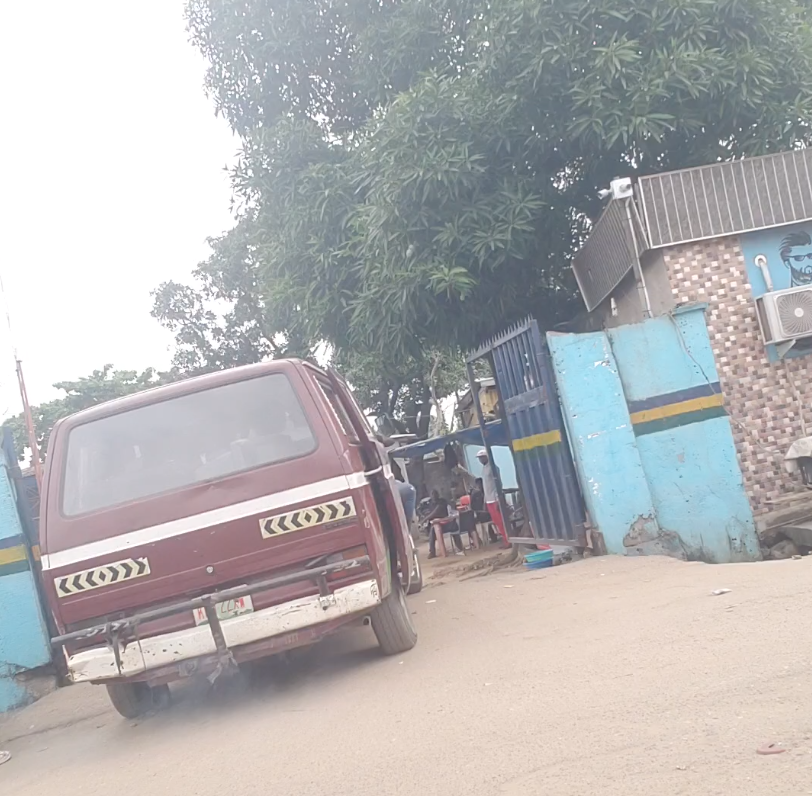
The Nigeria Police Force consistently campaigns that bail is free. Police stations across the country have ‘Bail is Free” in bold letters on their walls. It is what the police want Nigerians to believe: Bail is Free!!! But that much-vaunted claim is a ruse.
In 2017, the force relaunched the ‘Bail is Free’ campaign across the 36 states and the federal capital territory. The inspector-general of police detailed all senior officers to ensure compliance in their stations and divisions. The campaign, also saw stickers pasted on commercial buses, announcing that bail is free. But, the farther these buses travel with the advertorial and the more prevalent the short sentence becomes, the more blatant an average policeman becomes in demanding a fee for bail. The reality for many Nigerians is that bail is freakily expensive, and not paying it comes with gruesome consequences.
Joshua Daniel, a 17-year-old boy, ended up in Kirikiri Prison because his parents could not afford the exorbitant bribe his IPO at the anti-cultism unit demanded.
Daniel and eight others were arrested from a room, where they were watching football, by the Ikorodu community vigilante men called ‘On ya bo’. They were later handed over to the operatives of the police anti-cultism squad.
The boys are tailoring apprentices with Kareem Awal. On the day they were arrested by the local vigilante, they had worked a night shift with their boss, Awal told this reporter. It was a day in May 2018.
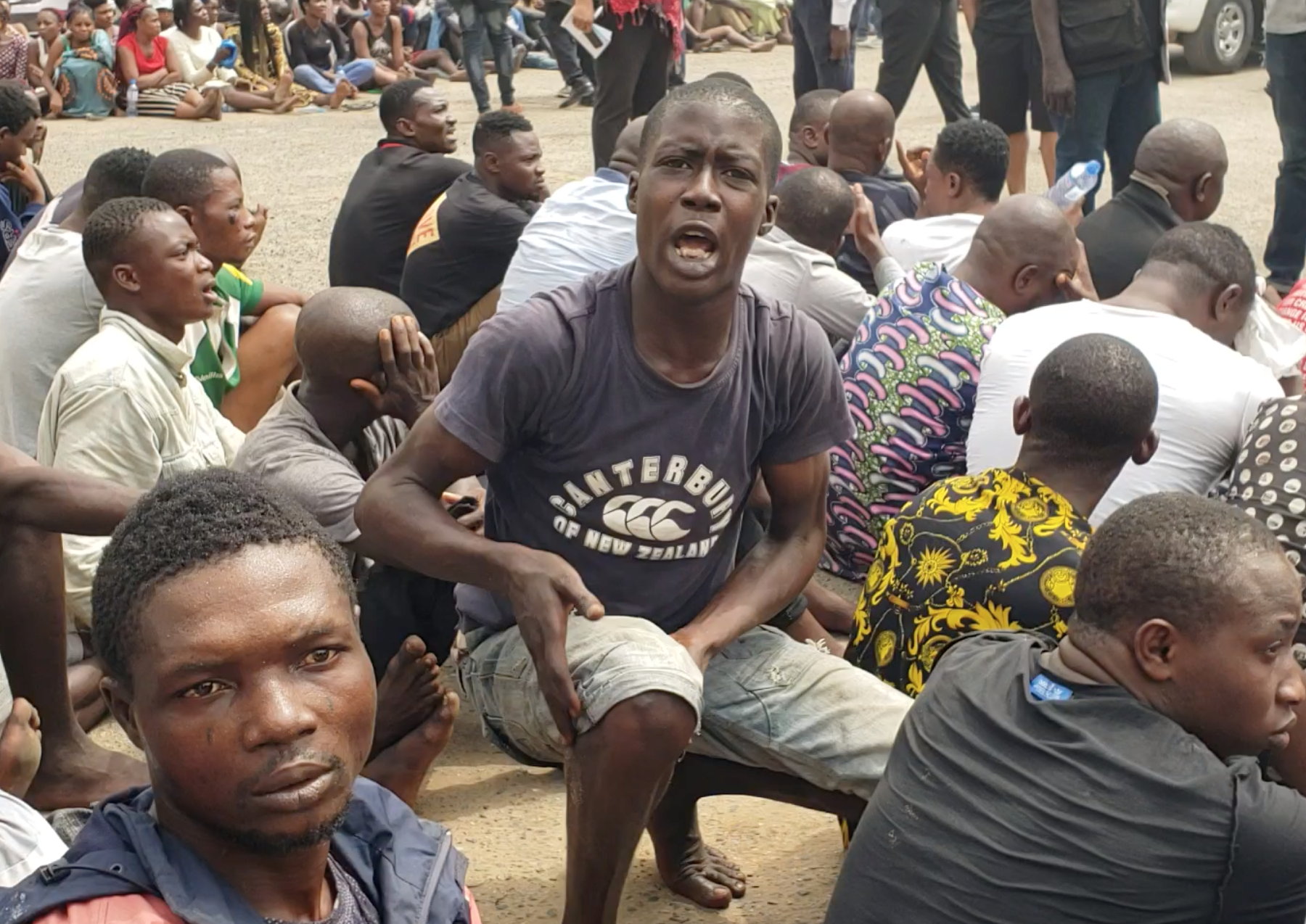
“Truly, we had finished work for the night and I asked them to stay in the shop but they went into the room of one of the neighbours to watch television. It was from that room that they were arrested,” Awal explained.
“We were all watching football in a room when [Tobi] my deaf brother ran into the house,” Kunle said. “He had seen the ‘On ya bo’ boys and got scared because he was always harassed by the vigilante and police due to his condition. They followed him into the room and arrested all of us. Then, they handed us over to the police who took us to Gbagada police station.”
Deji Oladapo was also arrested from the same room but he never made it to the court. Four days after they had been held in detention, their IPO demanded N100,000 from each person.
“My father later paid N70,000 for my brother and I. Two others paid N40,000 each and we were released from Gbagada after one week,” he said.
Oladapo said the police did not immediately ask for the money. They were kept incommunicado for about four days before they were allowed access to any family members.
Keeping the suspects for days before initiating contact with their family members is one of the tactics used to wear out and pressure the families, such that when the bail (ransom) is finally requested, the relatives feel relieved that their misery is about to end and source for money by all means.
HOW SUCCESSIVE LAGOS CPS PRESERVE ‘ILLEGAL’ PARADE
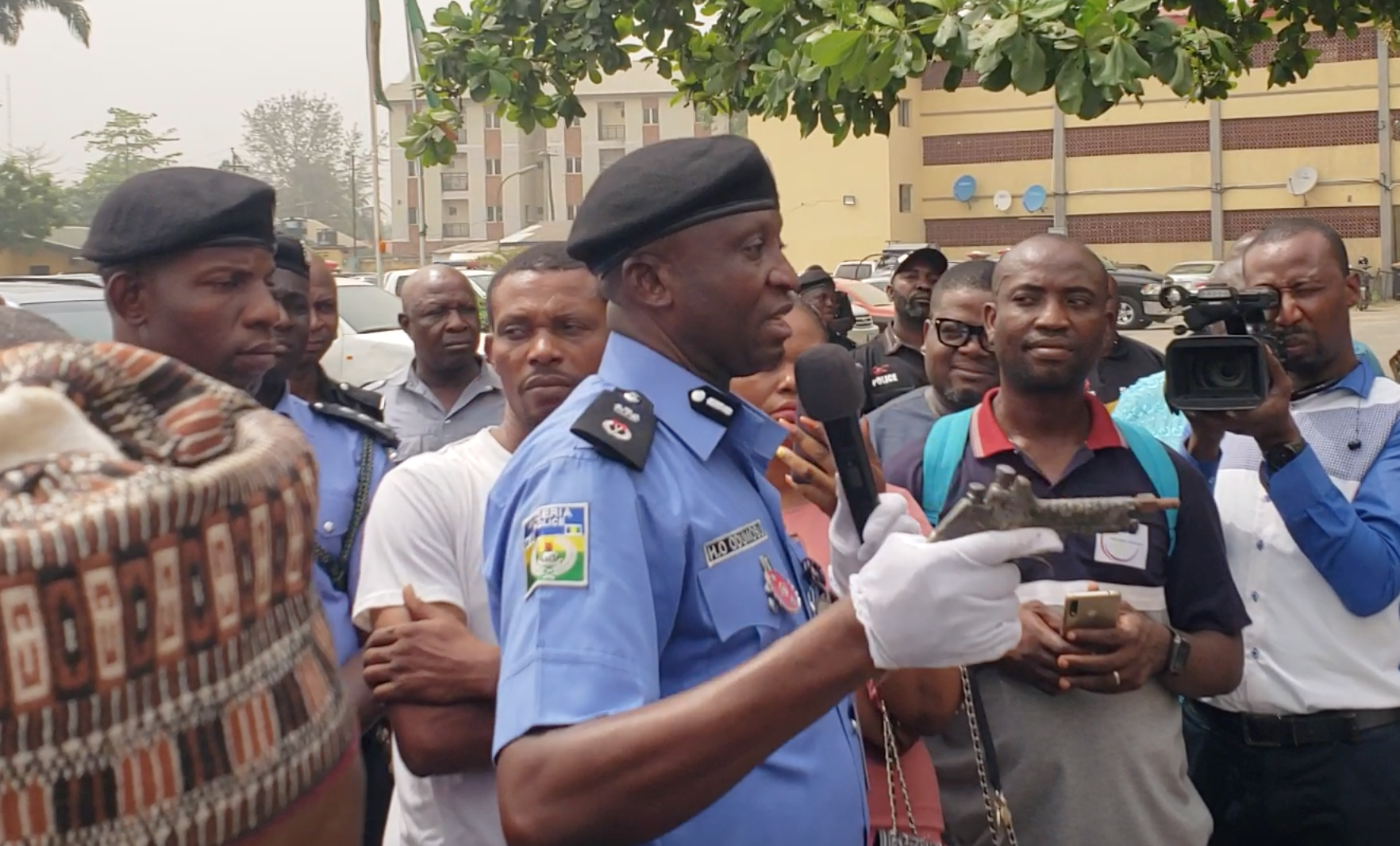
Every week across the country, hundreds of people are paraded at the police commands, mostly for PR gains. This investigation spanned three successive commissioners of police – Imohimi Edgal, Zubairu Muazu, and Hakeem Odumosu – in Lagos and they all gave the same reason for parading suspects as convicted criminals.
Edgal said media parade is necessary for the police to show its efforts in maintaining law and order.
“It is a way for police to always inform members of the public of what they are doing so as to win the trust and confidence of the people,” he said during one such parades at the Lagos police command in 2018.
Unfortunately, those who pay the price of this media stunts are, sometimes, innocent Nigerians with the misfortune of being poor. The Nigerian justice system is rigged against the poor who are unable to match up with different pockets of extortion at every layer.
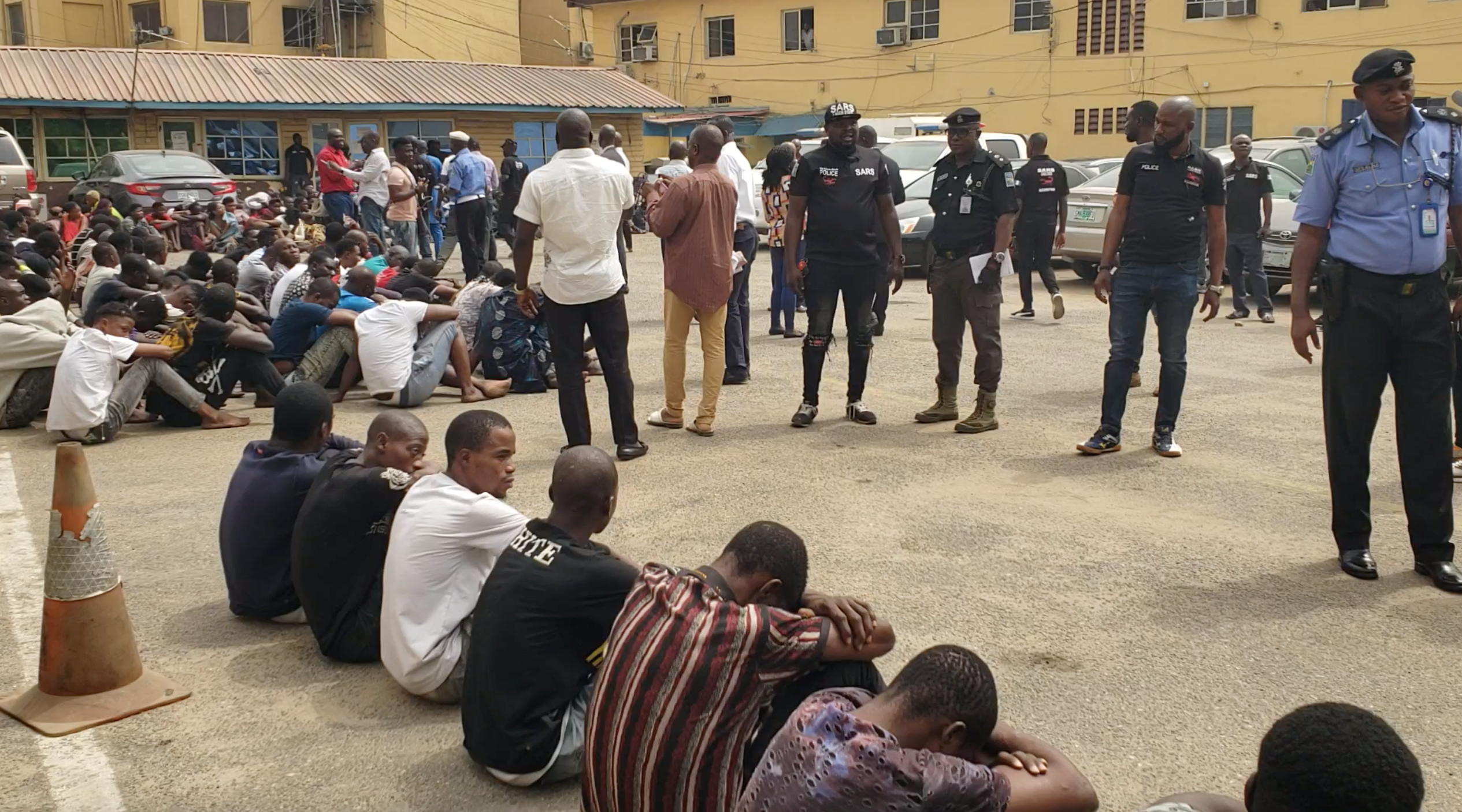
When Daniel was paraded, alongside 100 others Edgal, who was then the state’s commissioner of police told pressmen who covered the event and would later splash the suspects’ names and faces across all media platforms, that they were arrested at Ogolonto area of Lagos State.
This was false, investigation revealed, but the truth does not matter to the police at that point. It was all for PR.
“They can go to court to defend their innocence,” Edgal said during a question and answer session after the parade.
“We were shocked when they read their charges in court,” Awal, Daniel’s boss told this reporter. “They said they are cultists and that they arrested them from Ogolonto. This is not true but we cannot say anything. The boys worked overnight in my shop and were watching football in one of the rooms opposite the shop when they were arrested. They were arrested at Adamo.”
On Google Maps, there is about 8 miles distance between Adamo and Ogolonto.
A similar event replayed itself during the parade of suspects led by the current commissioner of police, Hakeem Odumosu. An Islamic clergyman, Abdullahi, was paraded at the command headquarters in Ikeja as a cultist.
Abdullahi, who was still in his neat native attire, said he was boot kicked out of the room with his friend whom he was visiting at Ijora, on January 7, 2020. Odumosu paraded Abdullahi the next day along with other alleged “114 armed robbers, 46 cultists, and 82 murders”.
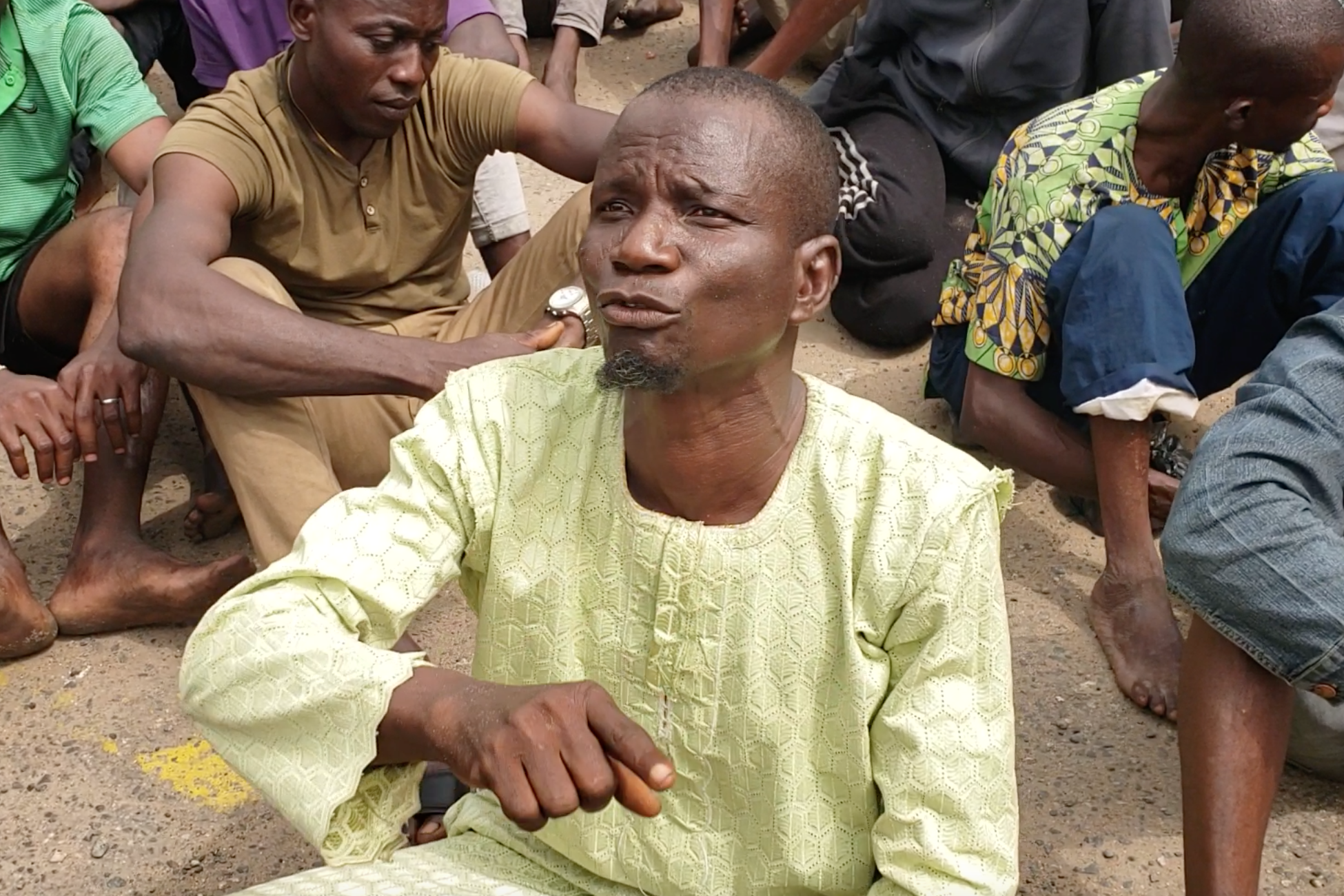
At the time of the parade – January 8, 2020 – the clergyman said he had not written a statement and had not been informed why he was arrested. The Administration of Criminal Justice Law of Lagos State provides that the reason for arrest must be expressly stated before an arrest can be effected. The law also mandates all security agencies to charge suspects to court within 24 hours or release them on bail.
An advocate for police reform and a lawyer, Segun Awosanya, condemned street raids and illegal arrests. During raids, people cannot be held under arrests, Awosanya said. For an arrest to be made there must be a warrant, he explained.
However, he said when a crime had just been committed in a vicinity, the police could invite—not arrest–people around the area of crime for questioning. Person invited in such instances cannot be put behind bars or be made to write extrajudicial statements.
“My challenge with that approach is this,” Awosanya said in an interview.
“When crimes are being perpetuated by cultists or armed robbers, you will not see the police officers. They will not be anywhere near the environment. Hours after the crime has been committed, the criminals have gone… innocent souls going to buy bread and ewa agonyi [beans] will be arrested with the pots in their hands as suspects for the crime.”
Sadly, this is the reality of many young Nigerians who have fallen victims of street raids. They are raided and paraded as criminal suspects before the media.
ILLEGAL PARADE HAPPENS EVERY DAY
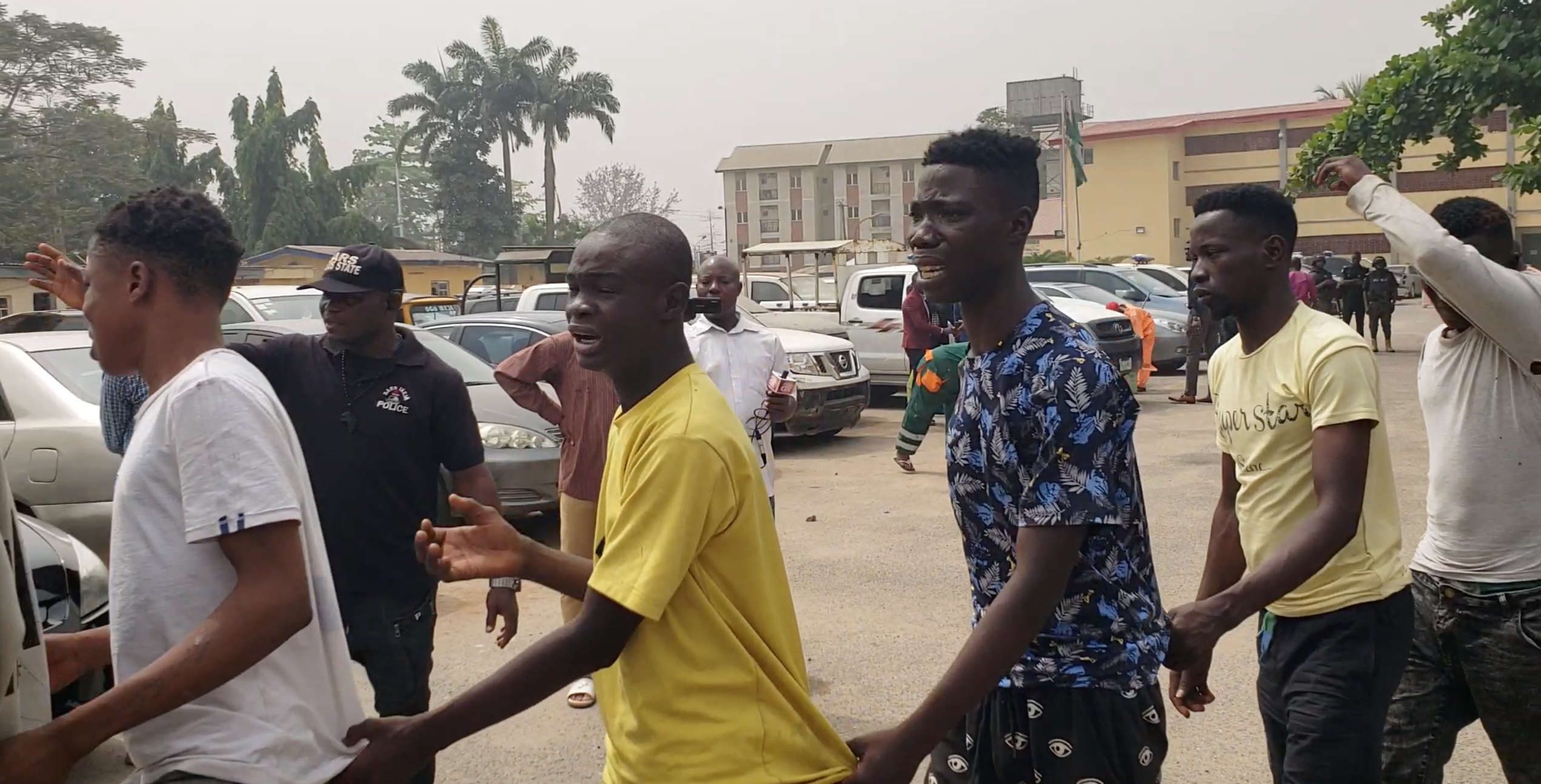
Street-raiding is one of the ways Nigerian security agencies illegally fleece people. From the Nigeria Police Force to the paramilitary task forces like the Lagos State Environmental Sanitation Corps (LAGSEC), street-raiding provides a daily meal ticket.
The Anti-Cultism Unit is not an exception. Different teams of operatives set out daily, with an empty eighteen-seater bus and return hours later with the buses fully loaded with young boys picked from different streets of Lagos.
This reporter, while being undercover at the Anti-Cultism unit in Gbagada, observed for a week, as policemen from the station illegally raided streets and extorted their victims.
“Don’t be surprised. It happens every day. It is what our eyes see here every time,” said one of the traders opposite the station. “When they come back later, the bus will be filled with young boys.”
A police inspector, who gave his name simply as Saudi, disclosed that people arrested in this manner and by operatives from the unit are treated less harshly once they pay the bounty of N5,000 or N10,000.
“If we arrest people directly, it is easier,” Saudi said.
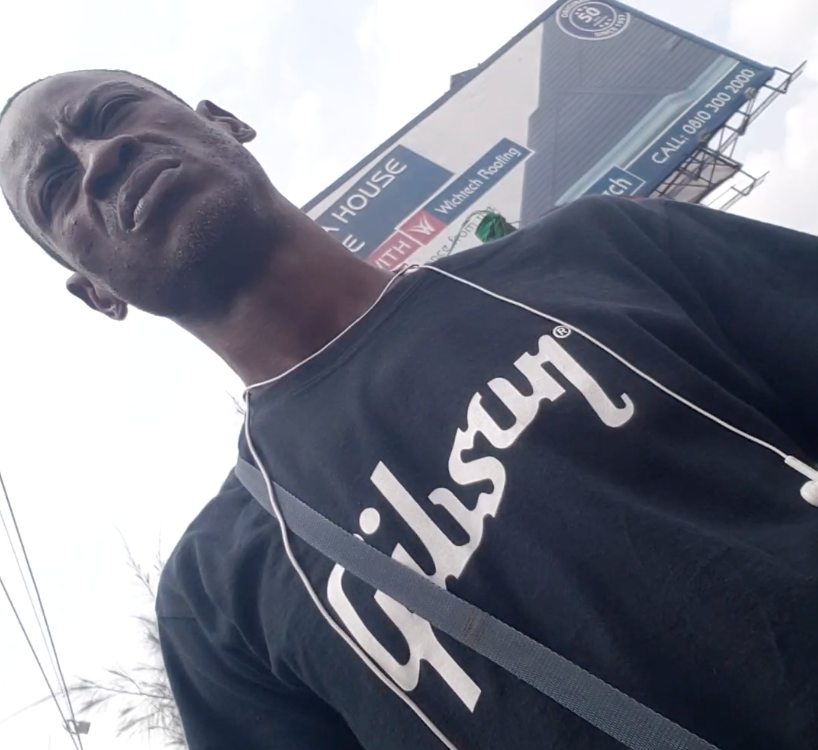
However, the fee skyrockets when the suspects are brought in by other stations as it was in the case with Daniel.
“Transfer cases are more difficult,” the inspector, Saudi, revealed. “The DPO from the other stations can report us that we are releasing suspects without charging them to court. That is why the transfer is higher because of the risk involved.”
Saudi, or Nur Adeboye as a caller identification app, Truecaller, suggested, did not volunteer the information out of goodwill. He is part of the extortion racket at the police station. Adeboye extorted N500 as an entrance fee from the reporter while undercover as niece to one of the detainees. He would later make sexual advances in exchange for his help in securing the release of her supposed uncle.
Saudi, in the company of another policeman, Abdul, was subsequently seen receiving the balance of a N70,000 illegal bail fee charged for the release of a detainee.
Atinuke [not real name] said her son was arrested for refusing to hold a suspect being chased by the police who was raiding streets at Ikorodu.
“A police officer asked my son to help him restrain a running suspect but he refused. That was his only offense. The policeman arrested my son and swore he would ensure he goes to jail,” she said. “I have spent more than N70, 000 at this police station. I had given them N60,000 earlier, it is the balance of N10,000 I bought today.”
Atinuke handed the N10, 000 to Saudi, who in turn handed same to Abdul. “Find something for me too,” Saudi asked the women as he handed the N10, 000 to his colleague
ANTI-CULTISM UNIT OR KIDNAPPERS’ DEN?
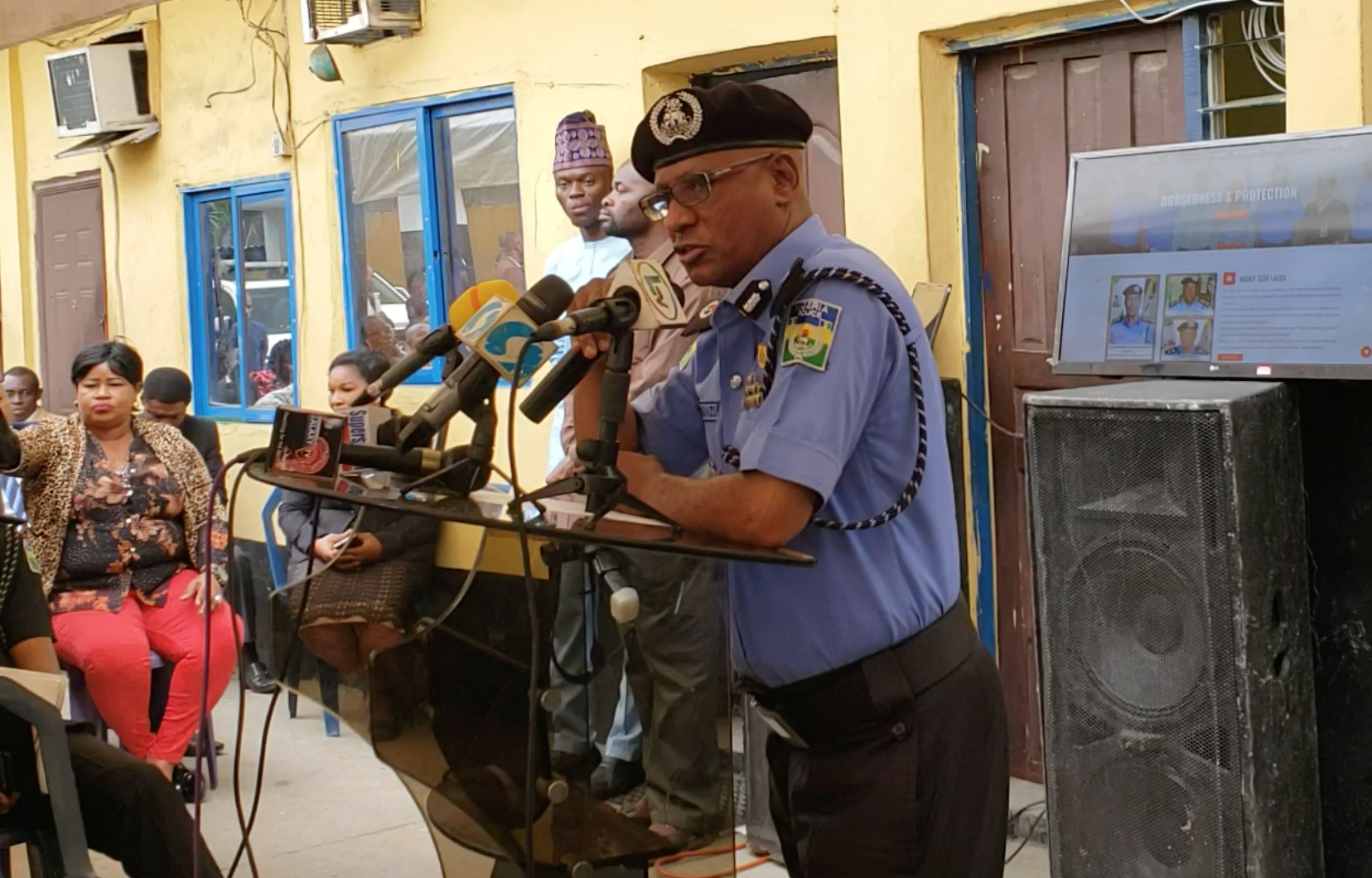
Sometime in July 2019, during the welcoming ceremony of the then Lagos State Commissioner for Police, Zubairu Muazu, was emphatic while addressing his officers, during an event at the State’s Criminal Investigation Department.
“When we say bail is free, we mean bail is free,” he said, as though trying to convince himself that his boys strictly comply with the ethos.
Muazu took his charade seriously, describing policemen who demand bail as kidnappers emboldened by state powers.
“Any officer collecting bail money is not better than a kidnapper. Yes, he is not better than a kidnapper,” he emphasized. “As for me, the difference is that a kidnapper keeps his victims where nobody knows but you [the extortionist officers] are keeping your victims in your cell, where everybody knows. That is the difference between an officer who takes any money and a kidnapper.”
The commissioner’s analogy, although a mockery of conduct of many police officers in the country, was apt.
At the time of reporting for this investigation, there were more than 10 detainees held in Anti-Cultism custody. Some have been there for months and weeks. Their family members struggled to gather the outrageous bail fee being demanded by the IPOs.
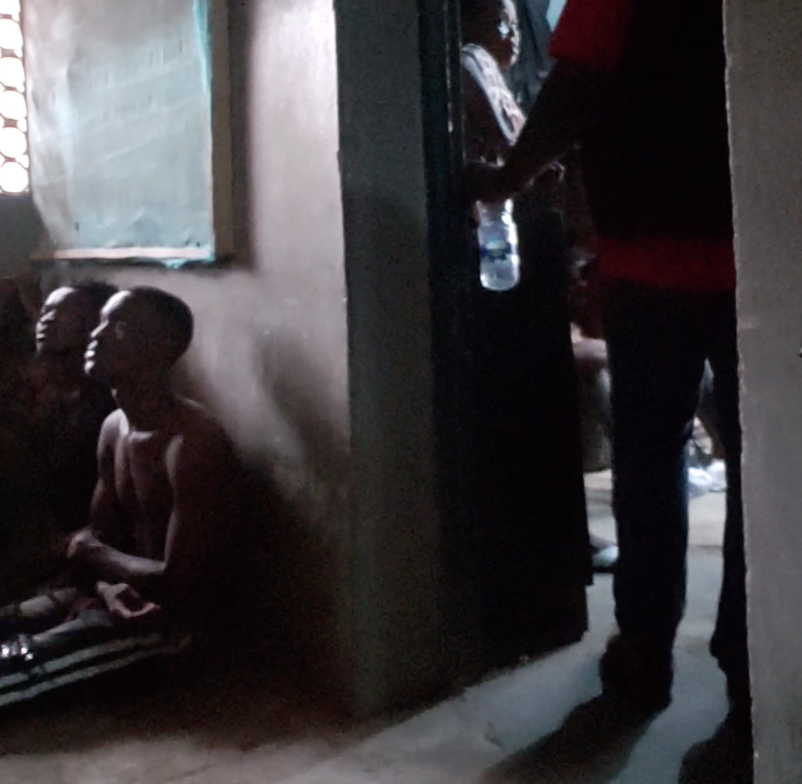
Bose Akinbade [not real name], a middle-aged woman, rallied around relatives and acquaintances to raise N300,000 requested for the release of her two children.
Twenty-one-year-old Onyebuchi had been in custody for two weeks. There was a bounty of N150, 000 on him to regain his freedom. His sister brought food for him every day while his IPO negotiated with his uncle for the money.
“When I saw my brother, he had emaciated,” she lamented. Two weeks in that place is not a good thing.”
Fifty-five-year-old Nurudeen Usman, was one of those also held at the detention of the Anti-Cultism Unit at the time. He was held captive for nine days while his family members run around to raise the N200,000 for his bail.
Usman’s ordeal started on a Sunday afternoon in July. He was coming from the workshop of an engineer fixing his wife’s refrigerator when he walked into a joint operation between Lagos State Neighborhood Safety Corps and policemen from Ejigbo station. They were raiding the street for suspected cultists.
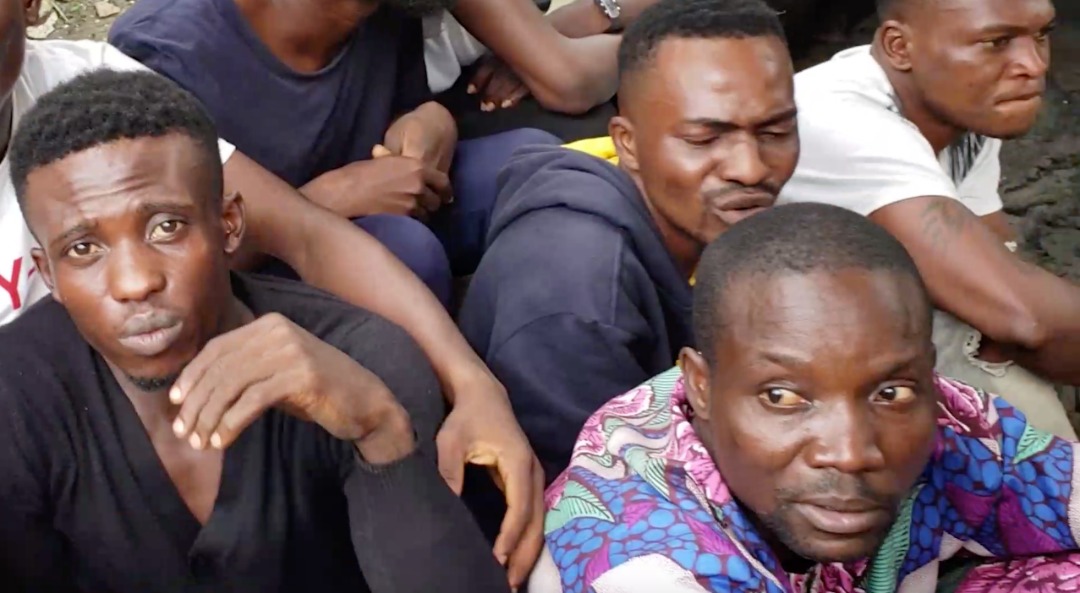
“I was on a phone call. Unknown to me that they were raiding in the field,” Usman explained. “One of the neighbourhood officers hit me from behind and knocked the phone off my hand. While I was defending myself, other policemen joined him, handcuffed me with another man who was arrested from the field and took us away.”
The other man handcuffed with Usman was old Baba Aro, a homeless man. Baba Aro was known in the neighborhood. He lived in one of the cabins on the field. He was accused for allegedly dealing in marijuana.
But Usman has nothing to do with him, he said. He knew Baba Aro but not more than anyone else in the neighbourhood who got familiar seeing him on the field and sometimes gave him food. Usman was not allowed to explain himself. He was bundled into the cell and labeled a cultist. His phone was also confiscated, unable to contact relatives.
Three days later, he was paraded at the state’s CID office before Muazu as a cultist. The elderly man could not believe he was indeed being accused of an offense punishable by one-year imprisonment or in extreme cases a death sentence according to the Criminal Code Act. He wept in the manner of beaten kid as pressmen interrogated him and flashed camera lights in his face.
“I am not a cultist. I went to check my wife’s refrigerator,” Usman said in Yoruba as journalists bombarded him with multiple questions.
The next day, Usman’s name and picture were splashed across different newspapers. He was branded a notorious cultist who had been terrorising his neighbourhood in one of the publications.
But this was the least of Usman’s worries. He had spent four days in detention and had no clue if he would be released or tried alongside people he met, for the first time, at the police station.
N70,000 as bail ‘ransom’
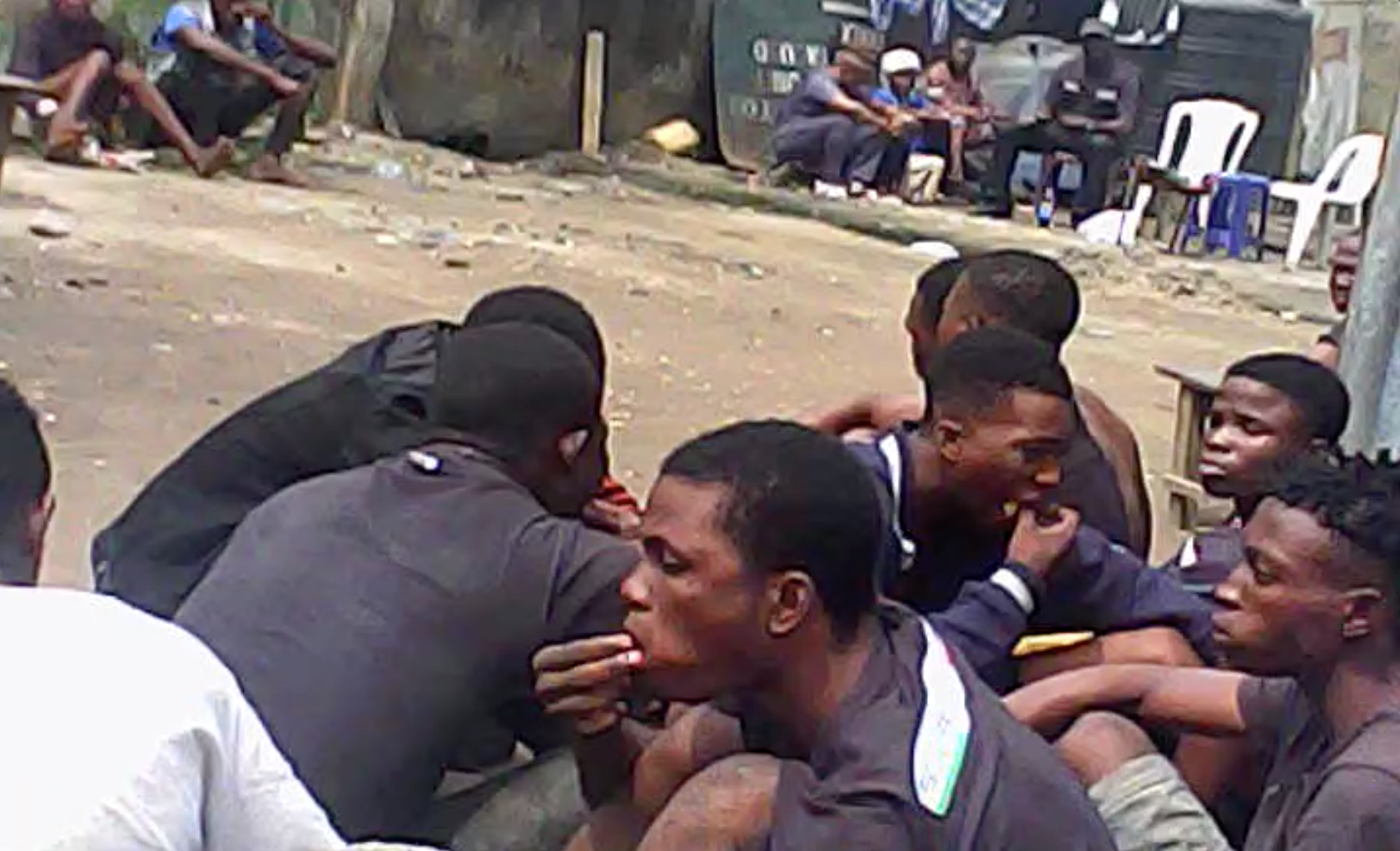
In the meantime, Usman was locked up at the Anti-Cultism detention centre, unsure of his fate. On Thursday, July 11, the family members met Supro Jimoh, famously referred to as Babalawo, for the first time. Babalawo was the IPO in charge of the transferred cases from Ejigbo Police Station. This means he was Usman’s IPO.
Babalawo did not attend to the family members on first visit. He gave no reason for this. He sat as the throne head in the premises of the police detention centre surrounded by other junior officers, and detainees who sat on the bare floor. Baba Aro and few other detainees were chained together in violation of Section 5 of the ACJA.
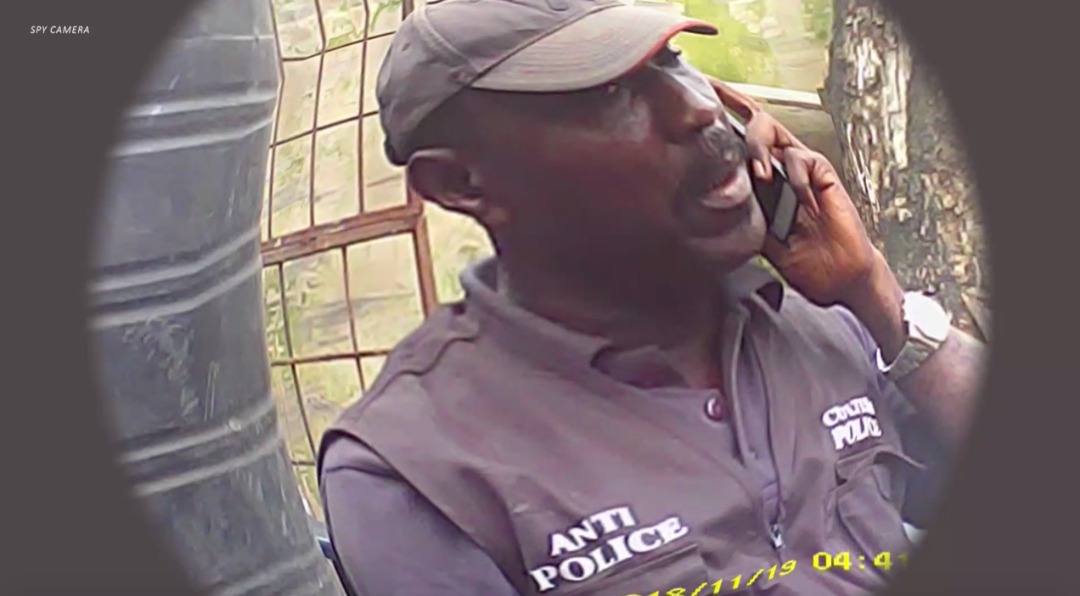
The ACJA prohibits the inhumane treatment of any suspects held in detention.
Section 8 (1) holds that “suspect shall: be accorded humane treatment, having regard to his right to the dignity of his person; and not be subjected to any form of torture, cruel, inhuman or degrading treatment”.
“Come back tomorrow,” Babalawo said casually.
Ganiya, the wife of Usman; Ademola, his brother, and this reporter who was undercover as his niece begged Babalawo but he would not bulge.
“Please, sir. My husband has been in detention since last week,” the wife pleaded.
Babalawo became impatient and went into a tirade about how detainees’ family members are always adamant, and would not listen to simple instructions.
“I have told you to come back on Friday,” Babalawo insisted. We cannot do anything today. When you come on Friday, we will know what we can do. He has only spent days here. There are people who have been here for a month.”
Friday, Usman’s relatives met with a more receptive Babalawo at about 10 am. He assured them Usman would be released before the close of work.
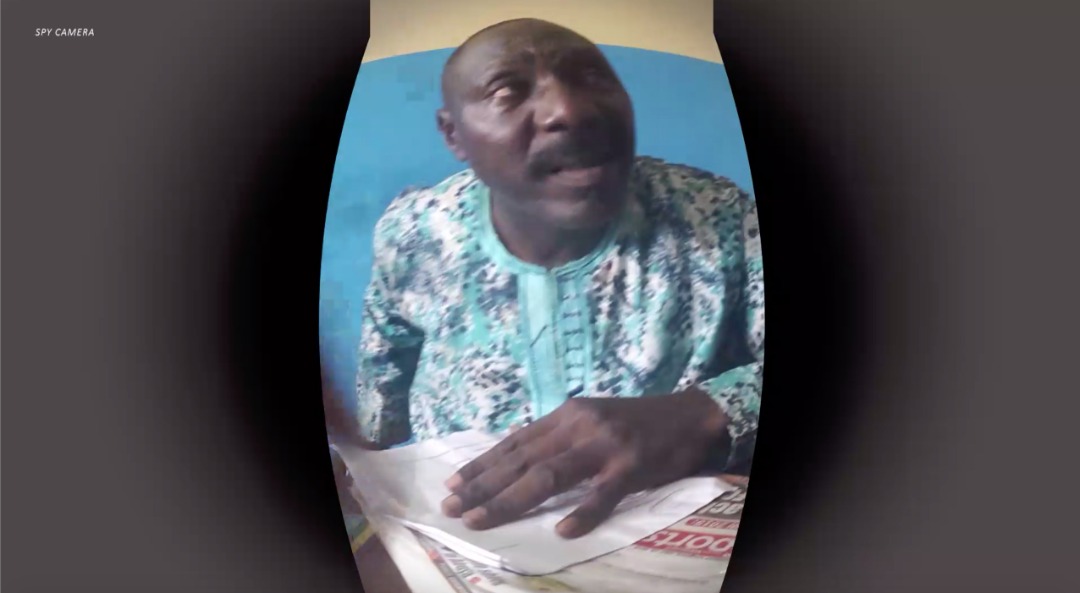
“The man is innocent, we know. He was only unfortunate to be at the wrong place. Once I get instruction from my boss. We will release him to you today. Don’t worry, he would go home today,” Babalawo assured.
He did not mention what this promised release would cost but having been at the station long enough, the relatives knew freedom comes with a huge financial cost. Still, Ganiya hoped that her husband would be vindicated by his innocence. Ganiya’s hope was dashed when Babalawo later demanded N200,000.
“The bail is N200,000,” he said when he later met with the family. “The case is even more serious than I had thought. His face has been published in the newspaper. They said he is a cultist, that he knows that old man who sells weed on the field.”
Babalawo then referred the relatives to a junior officer, a tall, fair man, who would collect the money and interface with the family henceforth.
After numerous calls to distant relatives and acquaintances, Ganiya could only raise N45,000, less than a quarter of the chunk demanded by Babalawo. Ganiya, accompanied by Ademola, begged Babalawo to accept all they could raise.
“Please, sir, I have emptied all my account,” she begged.

Babalawo, seated behind a desk in the small office he shared with other IPOs, was unpersuasive. He became hostile even. It was N200,000 or nothing. The man who was cheerful only hours ago suddenly became aggressive.
“Why are you begging me,” he quipped. “Go and talk to the inspector. Am I the one who asked your husband to commit a crime? Did the police arrest him from the room? He committed an offense that was why he was arrested.”
The change in Babalawo’s countenance was not surprising. The plea was threatening his harvest of corruption. The same man who had assured the release of Usman on the account of his innocence had suddenly turned against him. He brandished the newspaper report as though it was a court sentence.
“Is this not your husband in the paper?” he asked, waving the paper in Ganiya’s face.
Ganiya left the station, feeling dejected. How would she raise N200,000? Usman remained in the cell throughout the weekend as his relatives were unable to meet demands for his release.
Nine days later, he was released at about 8 pm after N70,000 was paid.
“Are you sure the money is complete?” Babalawo asked as he received the N70,000 bribe.
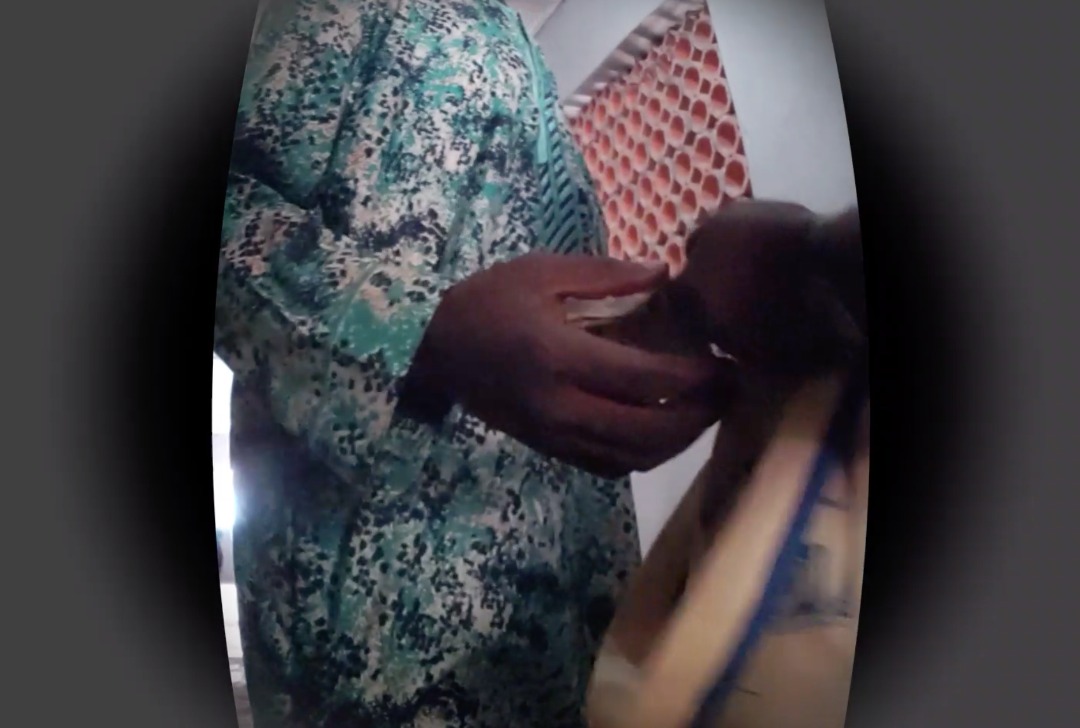
Babalawo is not the only of such officers, he works with other junior officers who sometimes negotiate the deal on his behalf. In the case of Usman, Babalawo referred the family to a tall, fair-skinned man who wore a chain necklace like a musician wannabe. The negotiation broke down with the fair-skinned officer because he insisted his superior would not accept less than a hundred thousand Naira.
While this reporter was in the IPOs’ office, negotiating the release of Usman, others were doing the same with the IPOs of their relatives.
THE TORTUOUS ‘KALAKUTA REPUBLIC’
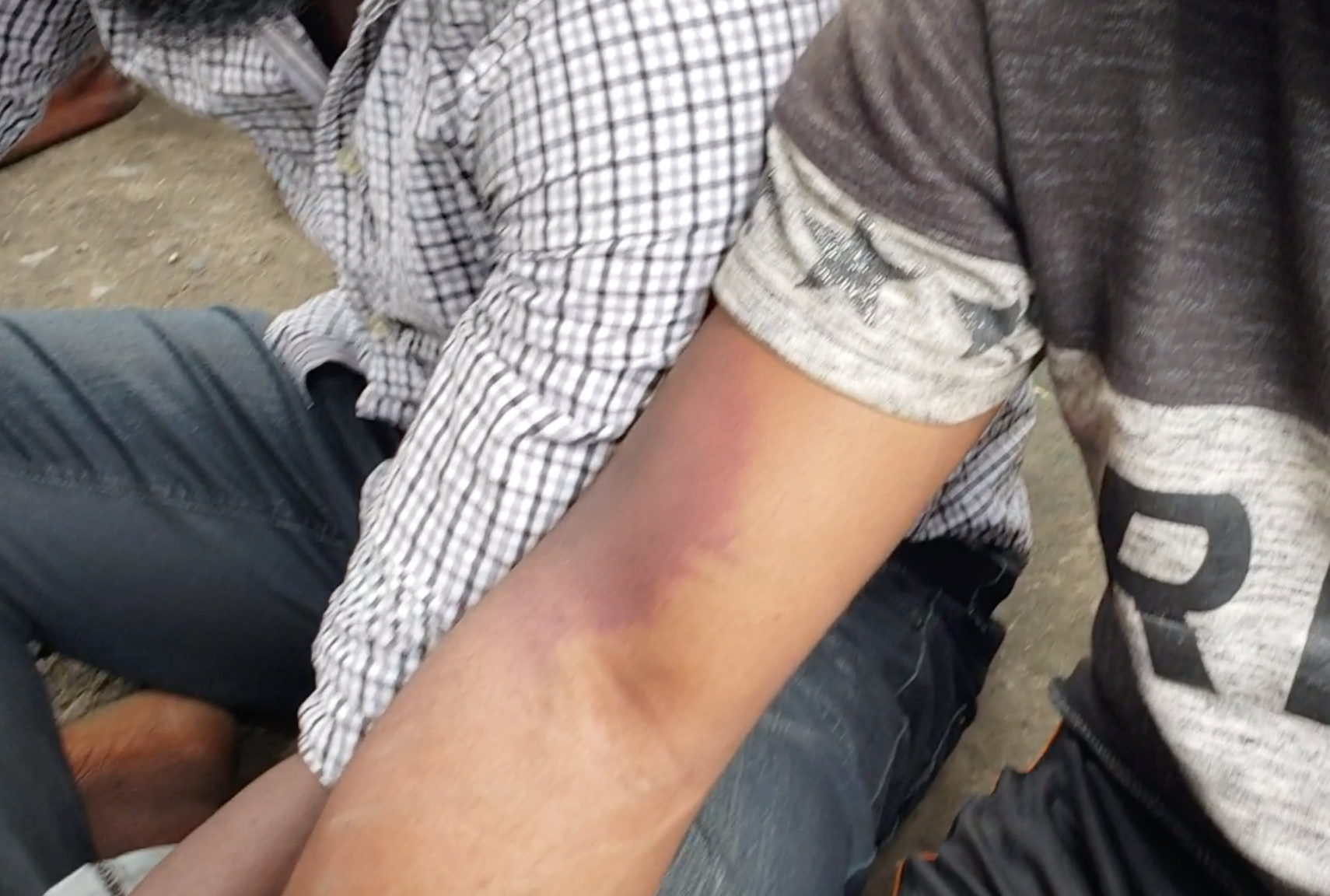
The Kalakuta Republic, created by the Afrobeat legend, Fela Anikulapo Kuti, is one where men live freely and without inhibitions. It was to mirror the exact opposite of “Calcutta” prison detention where Fela was held during one of his incarcerations by the Nigerian military junta.
Beyond what Fela could have conceived, the police now have a place named ‘Kalakuta Republic’ but for an inverted purpose different from the late radical singer’s club.
A torturous republic exists within the premises of the anti-cultism unit
The ‘Kalakuta Republic’ is a secluded space within the premises at the Anti-Cultism Unit. Suspects are tortured and inflicted with bodily harm to either extract extra-judicial statements or pressure them into parting with huge sums.
Many times, the paraded suspects are covered with bruises and wounds inflicted on them while in custody. Desmond Akpan [not real name], a student of the University of Lagos, was released to his father with a deep wound to his leg. He said he was hit with the nozzle of an AK47 rifle while in detention.
“They hit me with their guns on my leg, scratched my stomach. I did not do anything. I saw people running, I did not know why, so I ran too. I did not commit any offense,” Akpan explained when he was paraded at the police criminal Investigation department in Yaba.
Akpan still had his joggers on at the time he was paraded as a cultist. He was not arrested with any incriminating object but somehow, he was profiled and labelled a cultist. Ten days later, when he was released to his father by Babalawo, he could not fully balance his left leg.
Apart from the ACJA, other international laws prohibit torture of any kind on suspects. Nigeria is a signatory to the United Nations treaty against Torture and Other Cruel, Inhuman or Degrading Treatment or Punishment, adopted by the General Assembly on December 9, 1975.
The agreement prohibits torture of suspect in the bid to extract information or to subdue them.
Zeid Ra’ad Al Hussein, a former UN High commissioner for human rights, summarised the responsibility placed on law enforcement agents while dealing with suspects.
He said: “officials required to enforce the law should not undermine the rule of law. If the police break the law in pursuit of law enforcement, the message is one of capricious and abusive power. The institution which should protect the people becomes unmoored from principle; unresponsive to the law, it is a loose cannon.”
1 comments
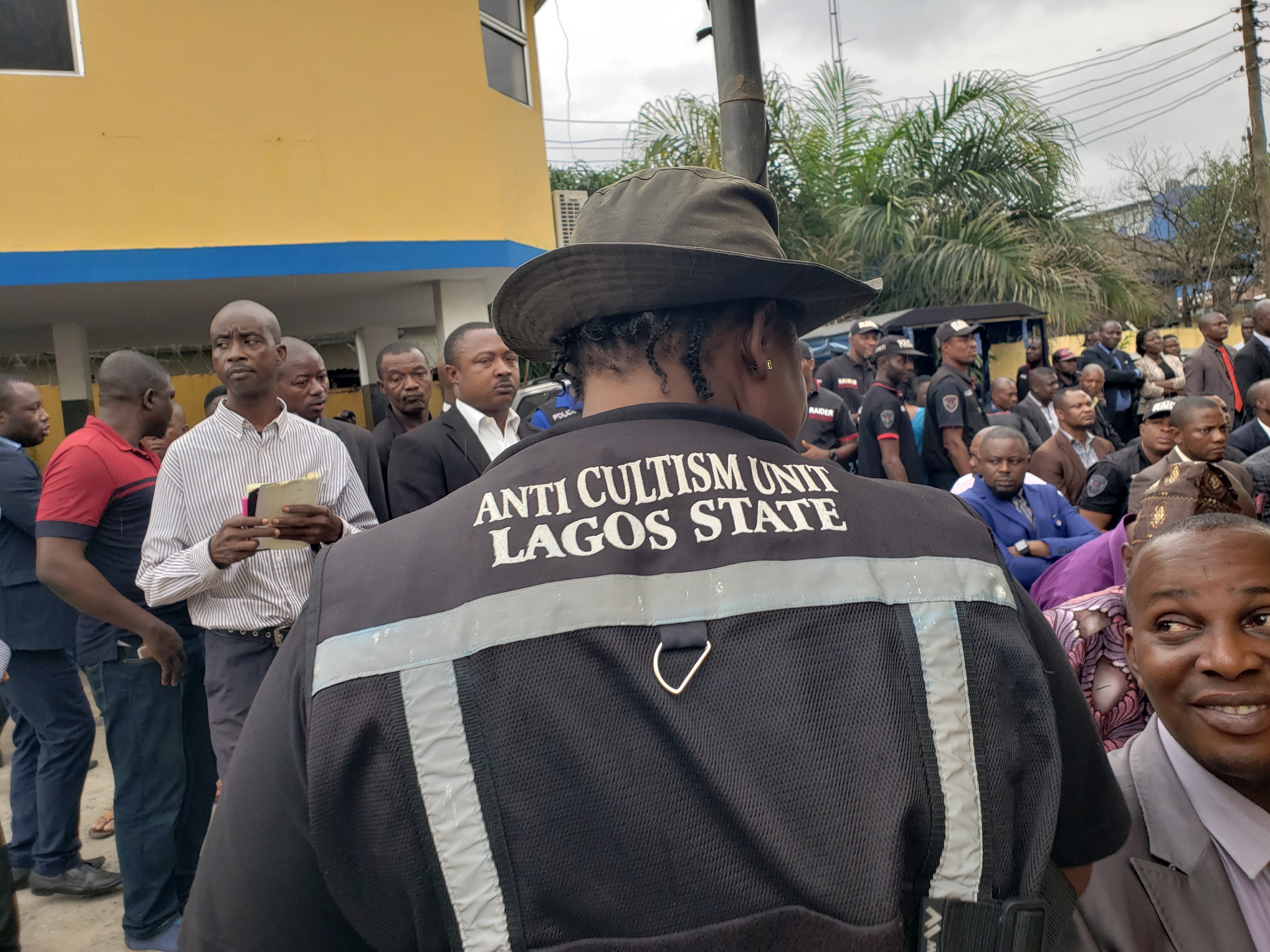




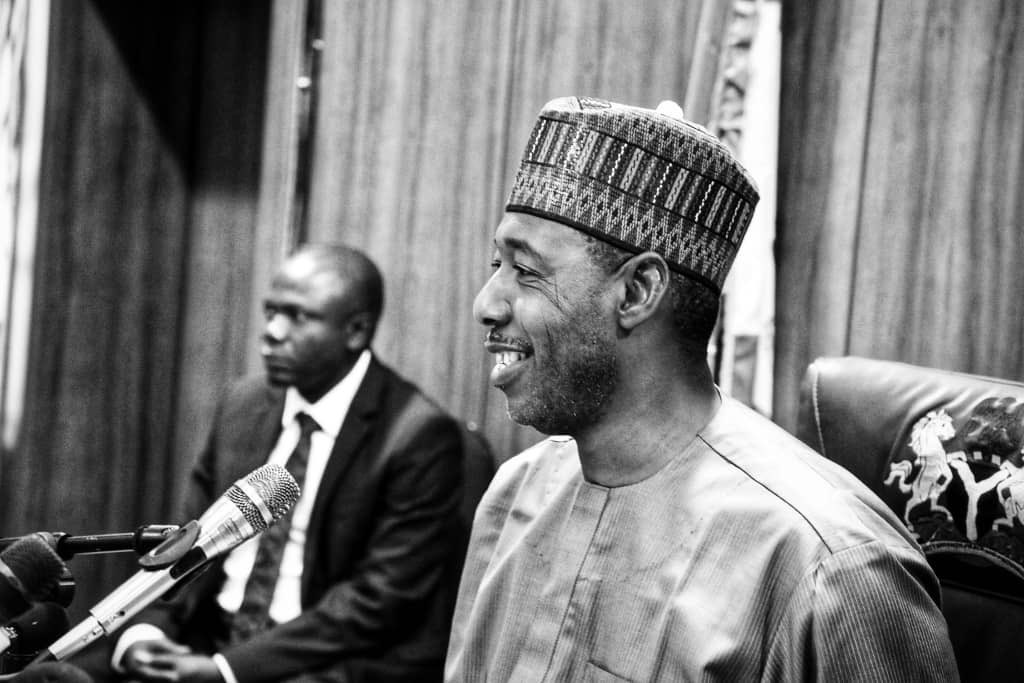

Very good job from the reporter…
Hope the Nigeria Police Force will take their time to investigate the content of this report and make all the necessary adjustments/sanctions for the progress of our dear Nation.